Instigator of Enlightenment: Juvenile Hall Librarian Amy Cheney
Amy Cheney is a librarian and advocate who has served preschoolers, middle schoolers, adults in county and federal facilities, students in juvenile halls, non-traditional library users, and people of color for over twenty-five years. Cheney has brought numerous writers—including Jerry McGill, Deborah Jiang Stein, Jesse De La Cruz, Luis J. Rodriguez, Cesar A. Cruz, Jimmy Santiago Baca, and Ron Glodoski—to conduct readings, writing workshops, and talks with the youth she serves at California's Alameda County Library Juvenile Hall. P&W has been supporting these programs for over a decade.
Cheney's six-word memoir is: "Navigator of insanity, instigator of enlightenment." Her theme songs are "Short Skirt, Long Jacket" by Cake and "I Can See Clearly Now" by Jimmy Cliff. For more information, follow her blog, Reaching Reluctant Readers.
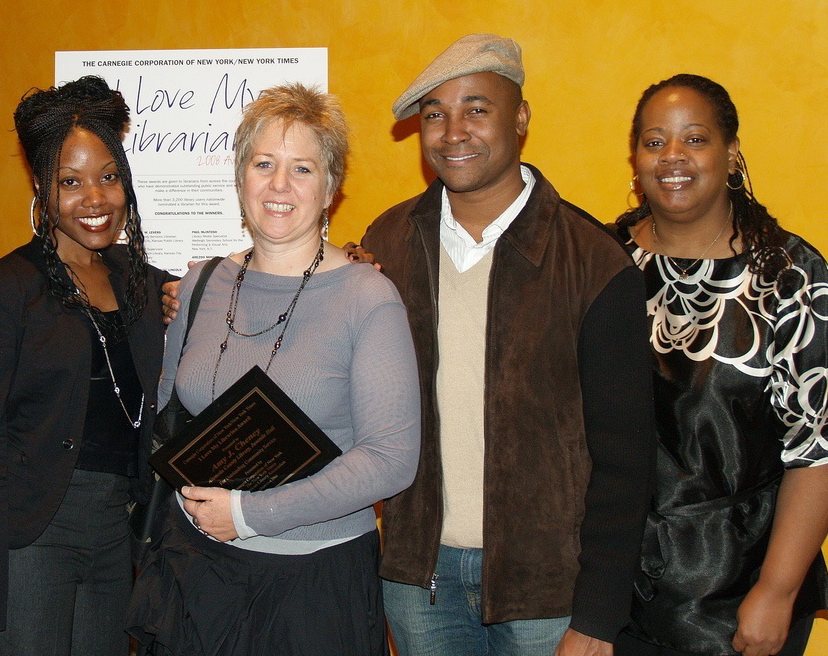 What makes your organization and its programs unique?
What makes your organization and its programs unique?
The Alameda County Library Juvenile Hall is a partnership between the public library, the county schools, and the Juvenile Justice Center to serve incarcerated youth.
When we first began the program, 81 percent of the youth said they had never heard a published author speak or read their work.
After authors visited the facility, 60 to 90 percent of the youth wanted to read their book or learn more. Sixty-three percent say they learn something new from author visits.
What’s the most moving or memorable thing that’s happened as a result of an event you’ve organized?
Seeing students, who haven’t had positive reading experiences in the past, wanting to read and reaching for the book (as well as having enough of the books to give them) is consistently memorable and moving.
How do you find and invite writers?
It's a process of intention, reading, research, networking, and luck. There were several artists that P&W helped us fund, who were little known at the time.
Walking home one evening, Jerry McGill was shot and paralyzed when he was thirteen years old. The shooter was never found. Jerry wrote a moving book called Dear Marcus, A Letter to the Man Who Shot Me. We were able to touch upon many issues that are often unspoken, but very real for the youth: getting shot, feelings of revenge, and forgiveness. Disability and life after severe trauma is an extremely important topic for our youth, but not often brought to light.
Deborah Jiang Stein was born in prison addicted to heroin. Her journey was fascinating to our girls.
Ron Glodoski does such an incredible program about physical, sexual, and verbal abuse. It is profound and life-changing for many of our youth to read, write, and explore these topics.
Youth are amazed that Jesse De La Cruz made it out of prison and is doing so well after more than forty-three years behind bars.
It’s also terrific to have well-known authors such as Luis J. Rodriguez, Jimmy Santiago Baca, and others grace us with their presence.
How has literary presenting informed your life?
When I was a rage-filled teen, I was forced—at least that’s how I remember it—to hear Maya Angelou speak in a church basement. I was pissed off I was there, but as the program went on I felt my defenses crack and something that had never been available to me opened up inside. This experience was so powerful, I’ve worked for thirteen years to provide the opportunity for others.
I've also learned a tremendous amount about integrity. Writing a book that reflects the truth is one thing, and living it is another!
What do you consider to be the value of literary programs for the community you serve?
I am not even sure how to answer the question adequately. They are invaluable in terms of hope, inspiration, contemplation, freedom, and provocation. Quotes from the students themselves, after meeting Jerry McGill, might help illustrate the value of these programs:
"It was really a very emotional experience. I feel like there should be more people sharing their experience of being victims to people who make crimes; kind of like seeing the other side of the coin. Keep doing the things you're doing in spreading your life story." —S
"I too have been shot and never found out who did it so I can understand that. I know you said that you forgave whoever did shoot you and that makes me think about if I ever knew who did it I would forgive them. I'm going to read your book when I get a chance." —D
"Your story made me want to write more, and to make my own book." —C
"I learned the best thing from you, forgiveness. I'm willing to learn more and hear more from you." —A
Photo: (Left to right) Writer Dream Jordan, librarian Amy Cheney, writer Jeff Rivera, and writer Coe Booth. Credit: David Shankman.
Major support for Readings/Workshops in California is provided by the James Irvine Foundation. Additional support comes from the Friends of Poets & Writers.






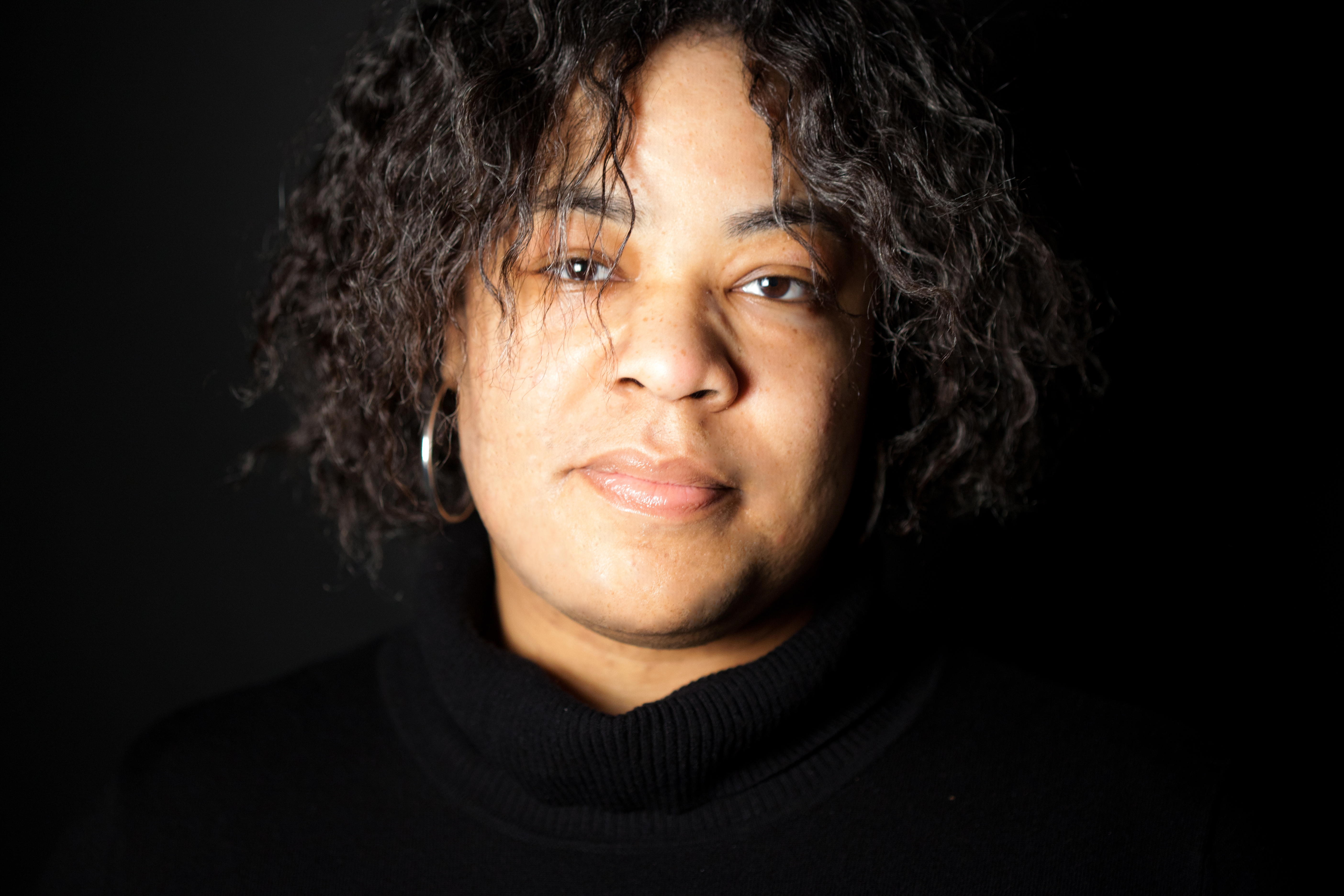 Writing poetry is a solitary endeavor. We carve out (and possibly steal) moments in order to get “the best words in their best order,” as Coleridge wrote. And once the poem is on a website, printed in a journal or book, each reader encounters and interprets those words uniquely, alone.
Writing poetry is a solitary endeavor. We carve out (and possibly steal) moments in order to get “the best words in their best order,” as Coleridge wrote. And once the poem is on a website, printed in a journal or book, each reader encounters and interprets those words uniquely, alone.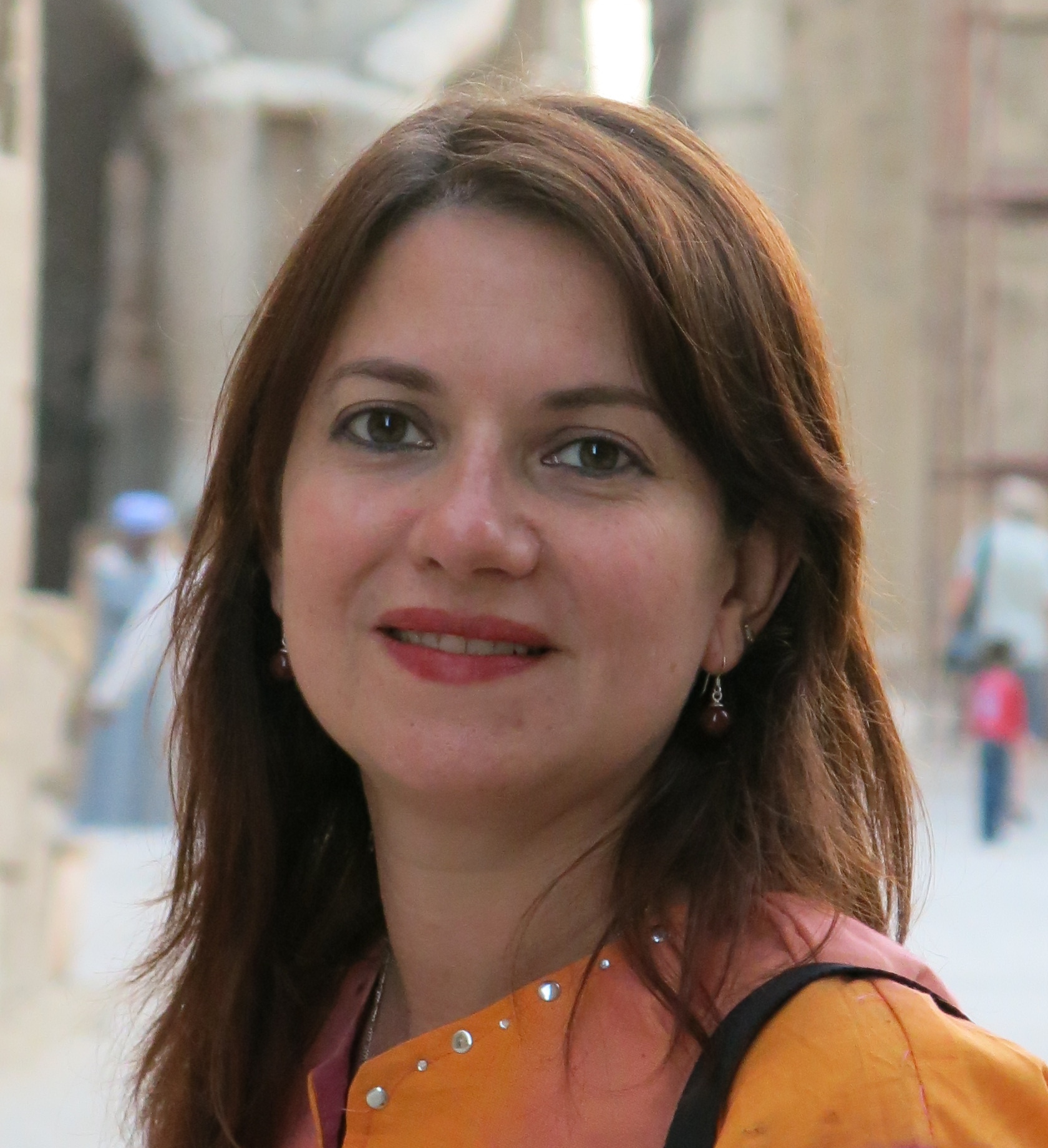

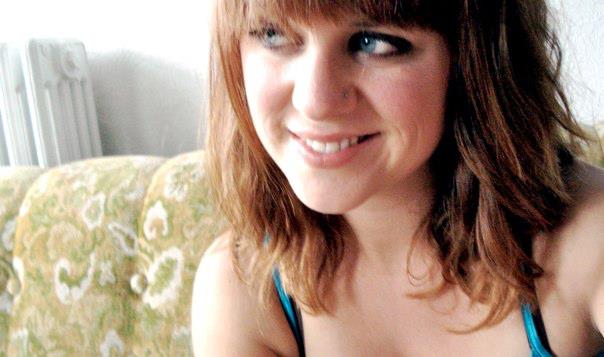
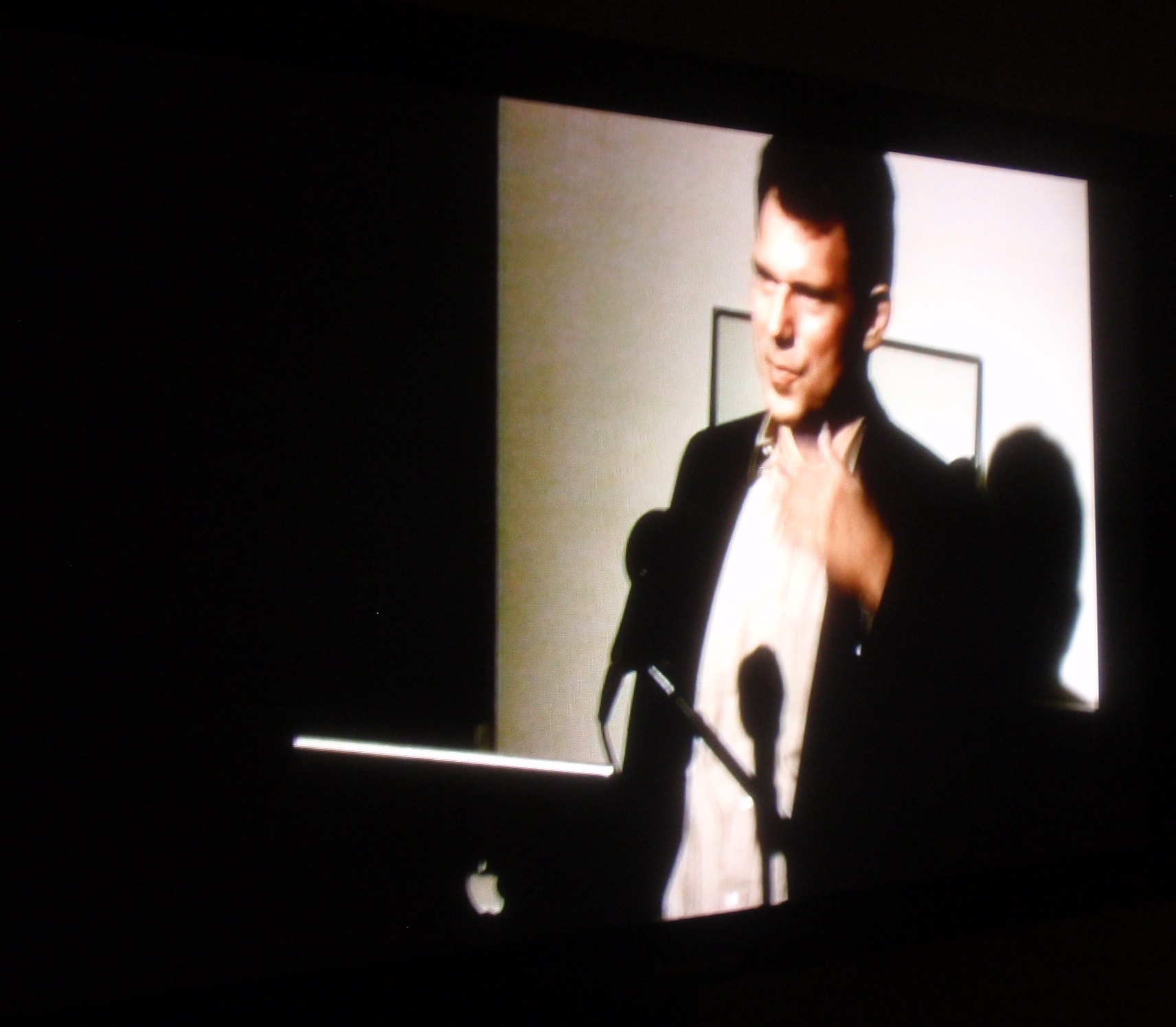 Author and Bookforum editor Albert Mobilio organizes apexart’s
Author and Bookforum editor Albert Mobilio organizes apexart’s 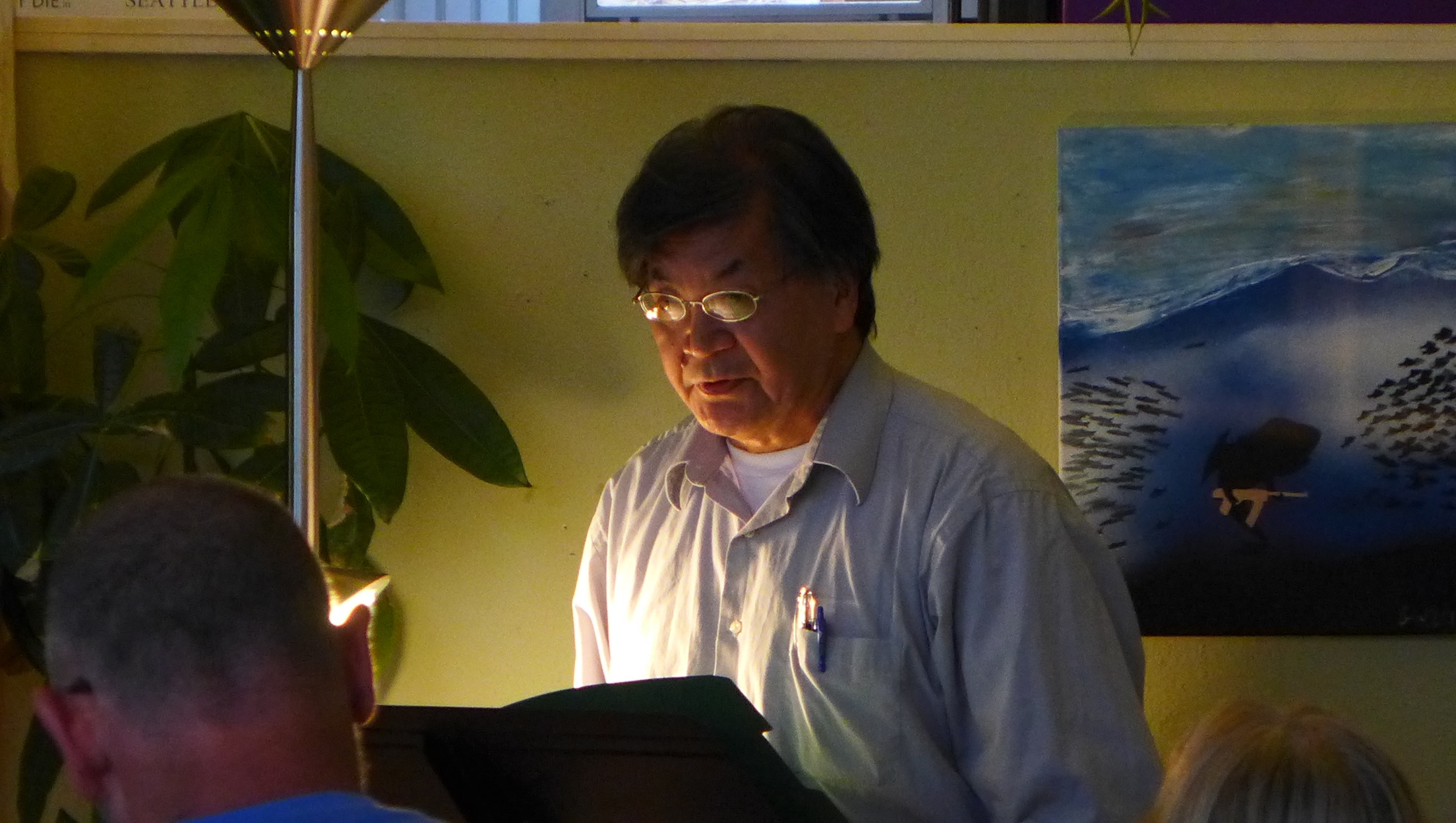 My Uncle Sum was my second maternal uncle and my mentor, a man of three teachings: Confucianism, Taoism, and Buddhism. He told his wife that the proper place to wash his clothes was at the river by the ancestral shrine, the part of the chicken to give their nephew was the thigh, and the way to regulate the household was to avoid unnecessary noise.
My Uncle Sum was my second maternal uncle and my mentor, a man of three teachings: Confucianism, Taoism, and Buddhism. He told his wife that the proper place to wash his clothes was at the river by the ancestral shrine, the part of the chicken to give their nephew was the thigh, and the way to regulate the household was to avoid unnecessary noise. 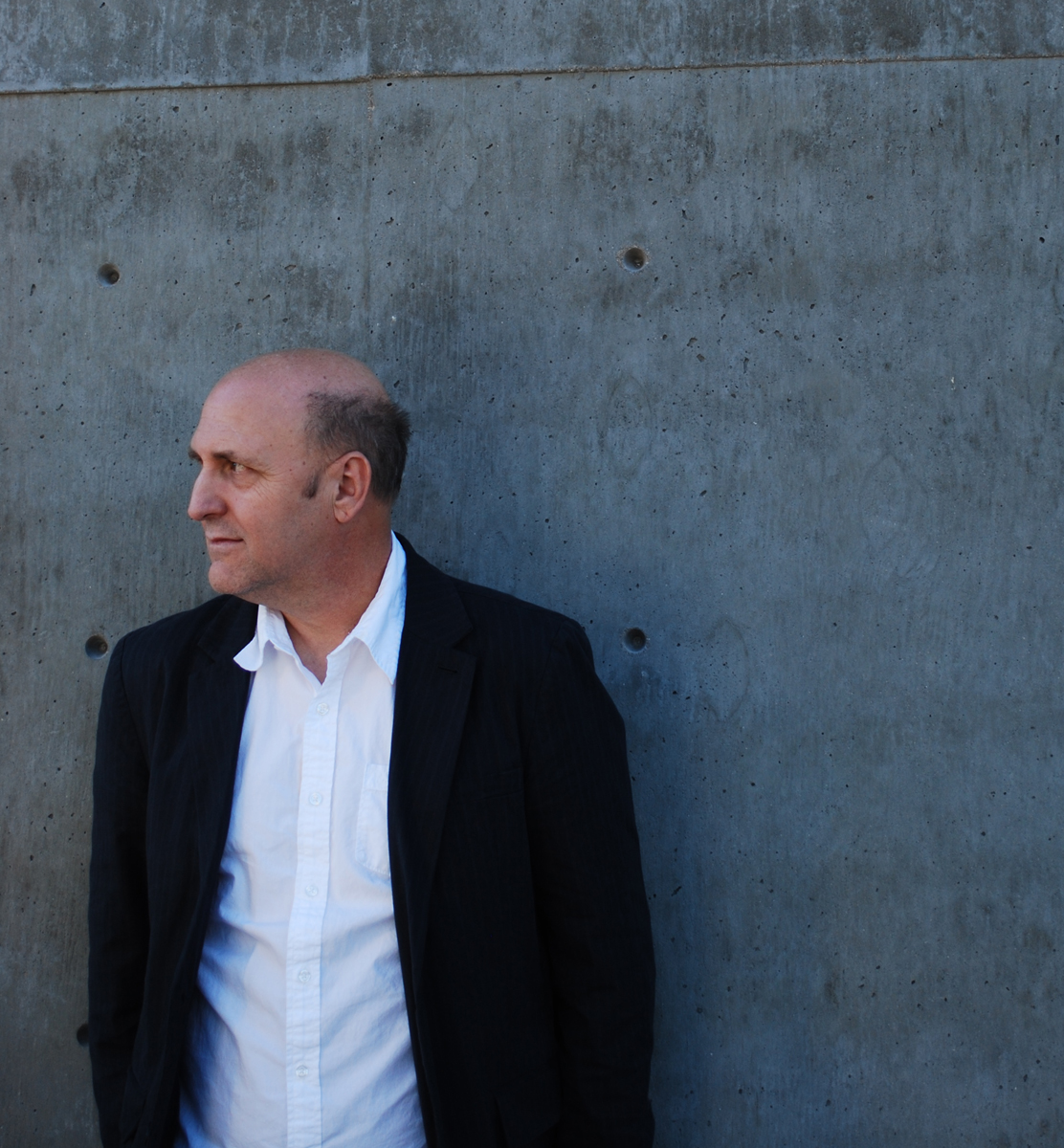
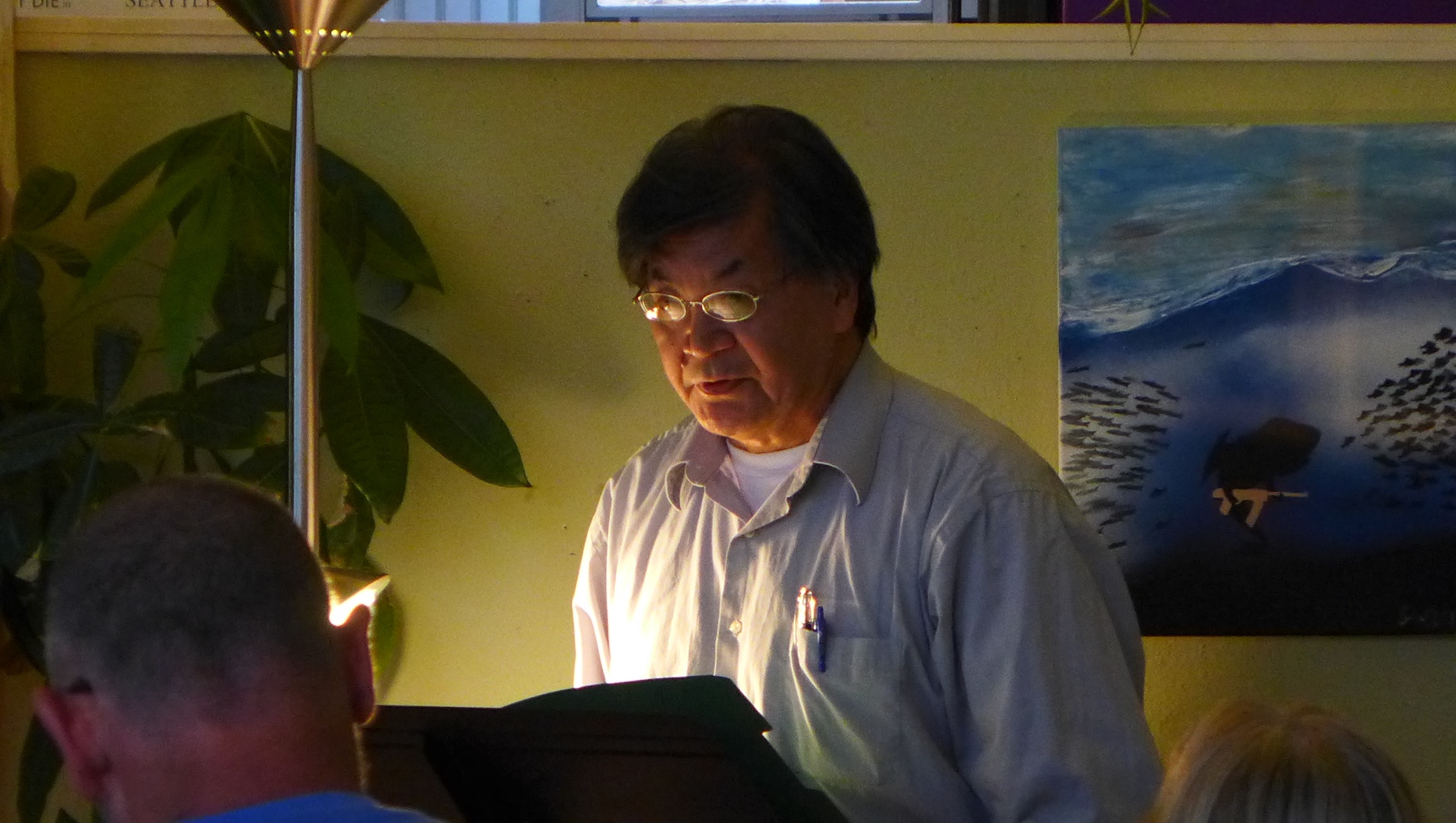 My most recent reading in Seattle—a production of the Chrysanthemum Literary Society with support from Poets & Writers, featuring several
My most recent reading in Seattle—a production of the Chrysanthemum Literary Society with support from Poets & Writers, featuring several 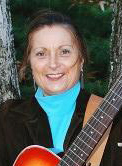 Of course, I recall my first attempts twenty or so years ago trying to explain to various academics my ideas. Neuroscience and brain chemistry fields really didn’t exist then, so usually my ideas were received with a raised eyebrow, leery glances, and silence. My first writing professor, Leonard Gilley, always said that perseverance was a writer’s mainstay. I continued to seek and cultivate my voice as a writer and in so doing I was met with profound adversity, and opportunities.
Of course, I recall my first attempts twenty or so years ago trying to explain to various academics my ideas. Neuroscience and brain chemistry fields really didn’t exist then, so usually my ideas were received with a raised eyebrow, leery glances, and silence. My first writing professor, Leonard Gilley, always said that perseverance was a writer’s mainstay. I continued to seek and cultivate my voice as a writer and in so doing I was met with profound adversity, and opportunities.